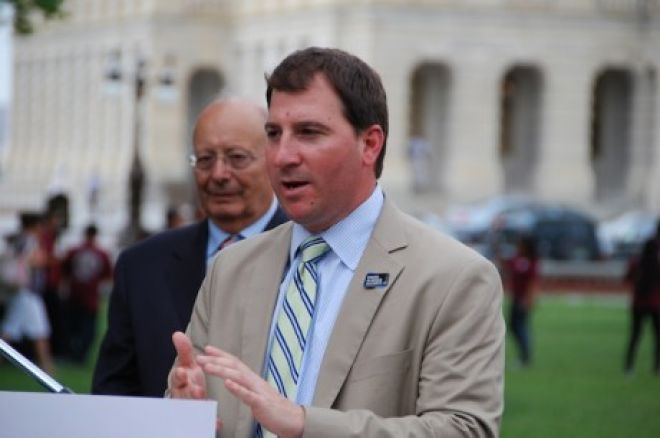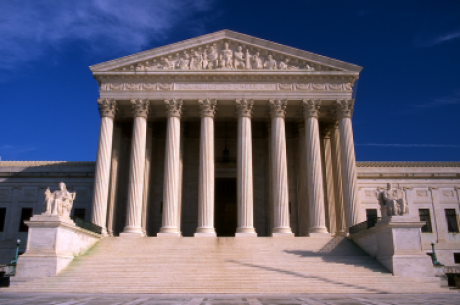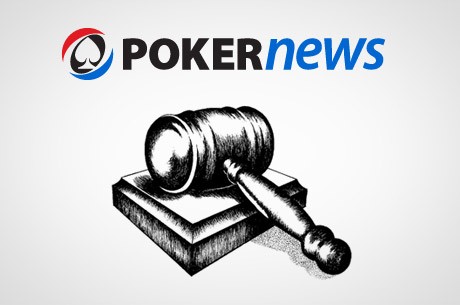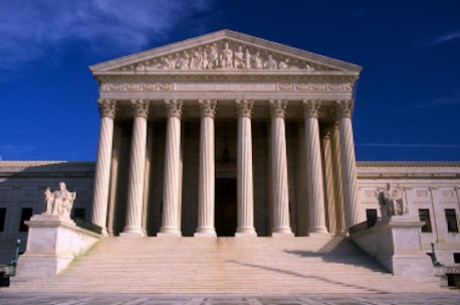PPA's Pappas Pleased with iGaming Congressional Hearing, But Adelson "Not Going Away"

If Tuesday's hearing on the state of online gaming in the House Energy and Commerce subcommittee on Commerce, Manufacturing and Trade was supposed to be a kickoff to Sheldon Adelson's efforts to ban Internet gambling nationally, it didn't appear to be the momentum-builder that the Las Vegas Sands CEO planned.
Poker Players Alliance executive director John Pappas caught the ball, lateraled it a few times with American Gaming Association president and CEO Geoff Freeman, and the pair at least brought it back past midfield.
��A lot of people speculated this hearing was called on behalf of Las Vegas Sands,�� Pappas said in a phone call with PokerNews following the hearing. ��At one point over the course of the past couple weeks, there was a concern that this hearing was going to be a setup and an attempt to undermine the momentum built for regulated gaming. I think over the course of the past two weeks, with our meetings on Capitol Hill and the efforts of poker players to contact their representatives, we were able to make sure this was a fair and balanced hearing.��
The hearing took place despite a snow storm in Washington, D.C., that shut down the federal government Tuesday. The disruption put more attention on the hearing, which was the only one going on in Congress at the time and therefore was shown live on C-SPAN.
Sands VP of government relations and community development Andrew Abboud represented Adelson's concerns at the hearing. Other witnesses, with links to their testimony, were Stop Predatory Gambling national director Les Bernal, Chapman University law professor Kurt Eggert and University of Massachusetts Amherst professor Rachel Volberg.
Academics, problem gambling groups, the PPA and AGA had given testimony at many Congressional hearings in the past that have gone nowhere. The wild card here was Abboud, how committee members would respond to his calls for banning online gambling, and how the player and industry representatives would be able to respond to his points.
Abboud focused his testimony on the Justice Department's legal opinion in 2011 indicating that the Wire Act does not bar online gambling, permitting states to authorize non-sports wagering over the Internet, and Adelson's opinion that Congress needs to restore the government's previous interpretation of the Wire Act to prohibit online gambling while cracking down on offshore sites serving the U.S.
��When someone goes to a casino, it takes physical initiative,�� Abboud said. ��Once at a casino, individuals can be identified to make sure they are who they are and are not under-aged. Casinos are highly controlled environments. Security cameras mark every move, and professionals watch patrons to make sure they are not getting in over their heads. None of these protections are available to the same extent when gambling is done over the Internet.��
Abboud seemed to indicate that Adelson's real concern in opposing online gaming is money with this statement: ��We talked about the European model. We have something in the United States that they don't have �� billions and billions of dollars of brick and mortar casinos that generate jobs, that generate a lot of livelihoods for a lot of people across the country, based on shows, conventions, trade shows, all those types of things. Europe doesn't have that. Simply because Europe stepped forward and pandered to the lowest-common denominator, it's not something our industry should follow.��
He didn't make clear if the ��lowest-common denominator�� was people who gamble online or simply people who use the Internet.
Pappas was ready to respond to Adelson's already well-known objections. He pointed out that there has not been a single reported incident of underage access in Nevada since Internet poker began in April, and that in late 2011, when the European Commission sought feedback on the effectiveness of its age controls, a children's organization on Internet safety reported that it wasn't aware of any instance where a child has beaten the system and gotten online to gamble. He also noted that the brick-and-mortar casino industry in the United Kingdom increased revenues since the legalization of online gaming.
Perhaps his best direct blow to Abboud and Adelson was the following argument that it's actually easier to protect problem gamblers online than it is in a brick-and-mortar casino.
��I could walk into the Venetian tomorrow with a thousand dollars in my pocket, play roulette, play craps, play poker, walk out and not a single person noticed I was in the casino and lost a thousand dollars,�� Pappas said. ��Online, that is impossible. They know every moment you're on the site, they know every game you're playing. Ever wager you're making, every win you're making, every loss you're making, it's tracked and recorded in real time, and regulators recognize that wealth of data is gold in terms of properly regulating it and ensuring that it's not abused.��
Committee members also got in on calling out Abboud and Adelson, with ranking member Jan Schakowsky (D-Ill.) noting it as ��a little hypocritical�� that Abboud was asking for this prohibition when the Venetian website advertises a mobile sports betting app that allows wagering anywhere in Nevada. Rep. Joe Barton (R-Tex.), leading sponsor of the Internet Poker Freedom Act, later showed the page on the Venetian website over a projector and gave Abboud a chance to respond, to which he feebly explained something about people needing to fill out an application at the Venetian cage, providing an eyeball-to-eyeball experience.
Freeman chipped in with facts supporting regulation, noting that 50,000 people signed up for New Jersey's online gaming sites in the first week, that Americans spent nearly $3 billion on offshore gaming sites last year, and that it is estimated 100 million individuals will play games on mobile devices by 2018. He pointed out that changing the Wire Act to prohibit Internet gambling would do nothing to quell the desire Americans have to participate.
��Responsibly extending gaming into the online world is a natural progression for our industry,�� Freeman said. ��Millions of Americans are already gambling online illegally and will continue to do so, no matter how many times we try to prohibit it. Millions and millions more would like to do so legally and responsibly.��
��I was really pleased to share the panel with Mr. Freeman, and thought he did an exceptional job in presenting the industry's case for this, especially given he only been on the job for six months,�� Pappas said.
The nature of congressional hearings prevents witnesses from refuting every point. They can only respond to what they are asked. Pappas said two aspects he wished he could have addressed were bots and how online gaming is better designed to handle problem gamblers by offering low- and even micro-stake games that can't be found in casinos.
��I think it went about as well as you can hope,�� Pappas said. ��I was begging for someone on the panel to ask me the bot question. At first, I would have noted that Mr. Eggert [who loves to espouse on bots] is a legal professor and that his positions are merely theories, that he doesn't have any specific computer science expertise. And how, while bots are certainly a problem, the industry goes to great lengths to aggressively seek out bots and disable them.��
Rep. Marsha Blackburn (R-Tenn.) made a comment that Twitter accounts of committee members have been very active, saying she didn't know if it was bots spamming them. Pappas assured her that it was real people looking to protect their freedom to play online poker.
If this was a preview of Adelson's efforts to seek a federal ban on Internet gambling in 2014, it wasn't the highlight reel he was looking for. But his political clout and commitment to turn this issue into a national campaign can't be underestimated.
��I don't think they're going away,�� Pappas said. ��They laid out their position. I'm not sure it had a lot of resonance with the committee, but they'll continue to push forward. Whether we feel we won this hearing or not, this is just one battle we'll have to fight and I hope the poker community realizes it needs to continue to be very aggressive in contacting our lawmakers in support of the right to play.��
Today's online poker Congressional subcommittee hearing can be found here.
Get all the latest PokerNews updates on your social media outlets. Follow us on Twitter and find us on both Facebook and Google+!








